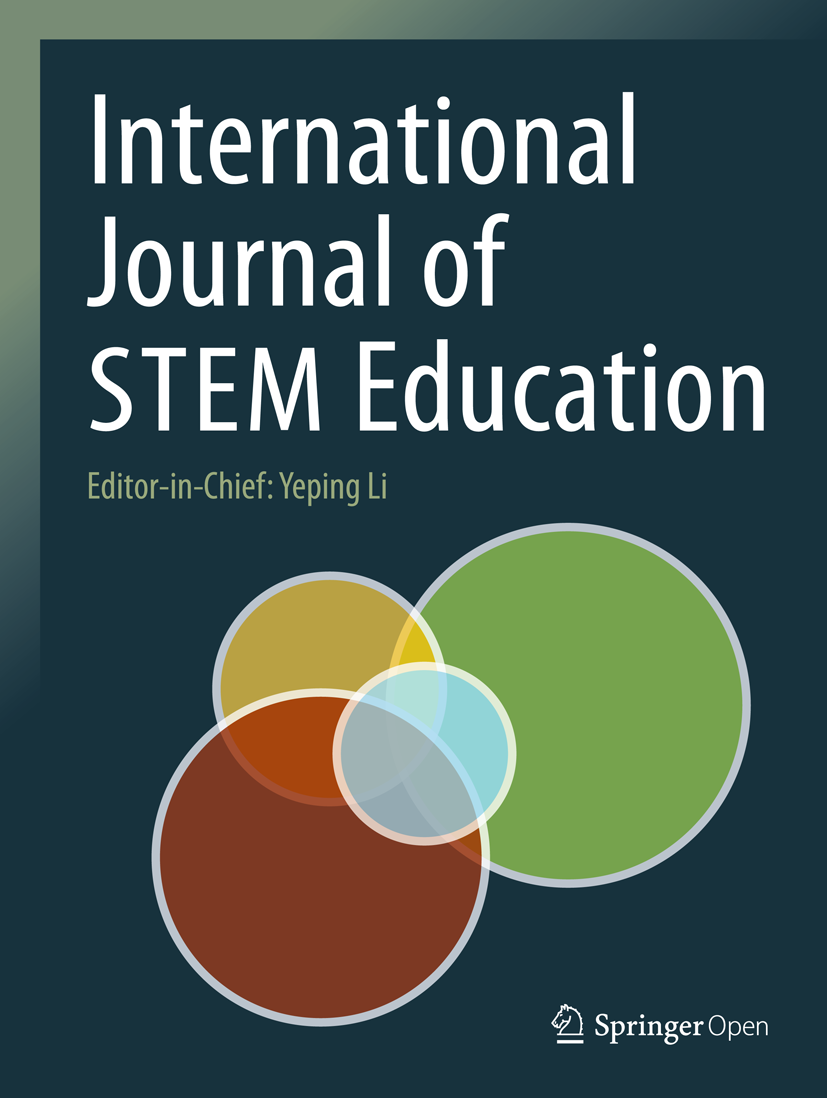STEM 自然减员之外:在大学期间改变 STEM 领域的职业规划与个人职业动机、确定性和满意度较低有关
IF 8
1区 教育学
Q1 EDUCATION & EDUCATIONAL RESEARCH
引用次数: 0
摘要
研究和政策通常侧重于减少科学、技术、工程和数学(STEM)职业教育轨迹中的自然减员,但许多学生会在 STEM 领域内改变职业规划。本研究探讨了在 STEM 领域内改变职业规划与职业准备心理指标之间的关系。我们对美国一所大型研究密集型公立大学的本科生(N = 1,727)进行了一次大规模的在线调查,调查涉及 42 门课程,涵盖了 STEM 领域的所有主要学科。学生们报告了他们的职业规划、规划是否改变、职业规划的动机、对这些规划的满意度以及坚持这些规划的把握。一个训练有素的编码员小组对学生在调查时和大学开始时是否报告有 STEM 职业规划进行了分类。与坚持 STEM 职业规划的学生相比,自称在大学期间改变过 STEM 领域职业规划的学生对新职业规划的积极性、对这些规划的满意度和坚持下去的把握都较低。除少数例外情况外,这些关联在学生的性别、种族、在校年级和 STEM 学习领域中都存在。在 STEM 领域内改变职业规划的情况非常普遍,有 55% 的 STEM 专业四年级学生报告了这种情况。女生比男生更经常在 STEM 领域内改变职业规划。研究结果表明,在科学、技术、工程和数学领域内改变职业规划是培养合格的、多元化的科学、技术、工程和数学人才时需要考虑的一个重要现象。与不改变计划的学生相比,在 STEM 领域改变职业计划的学生可能需要额外的支持,以提高他们的职业动力和满意度。本文章由计算机程序翻译,如有差异,请以英文原文为准。
Beyond STEM attrition: changing career plans within STEM fields in college is associated with lower motivation, certainty, and satisfaction about one’s career
Research and policy often focus on reducing attrition from educational trajectories leading to careers in science, technology, engineering, and mathematics (STEM), but many students change career plans within STEM. This study examined how changing career plans within STEM fields was associated with psychological indicators of career readiness. We conducted a large online survey of undergraduate students (N = 1,727) across 42 courses covering every major STEM discipline at a large U.S. research-intensive public university. Students reported about their career plans, whether plans had changed, motivation for those career plans, and satisfaction with and certainty of persisting with those plans. A trained team of coders classified whether students reported having STEM career plans at the time of the survey and at the beginning of college. Students who said they had changed career plans within STEM fields during college also reported lower motivation for their new career plans, satisfaction with those plans, and certainty of persisting in them, compared to students who retained consistent STEM career plans. With few exceptions, these associations held across students’ gender, race, year in school, and STEM field of study. Within-STEM career plan changes were very common, reported by 55% of fourth-year STEM students. Women reported changing career plans within STEM fields more often than men. Results suggest that changing career plans within STEM is an important phenomenon to consider in preparing a qualified and diverse STEM workforce. Students who change career plans within STEM fields may need additional supports for their career motivation and satisfaction compared to students who do not change plans.
求助全文
通过发布文献求助,成功后即可免费获取论文全文。
去求助
来源期刊

International Journal of Stem Education
Social Sciences-Education
CiteScore
12.40
自引率
11.90%
发文量
68
审稿时长
13 weeks
期刊介绍:
The International Journal of STEM Education is a multidisciplinary journal in subject-content education that focuses on the study of teaching and learning in science, technology, engineering, and mathematics (STEM). It is being established as a brand new, forward looking journal in the field of education. As a peer-reviewed journal, it is positioned to promote research and educational development in the rapidly evolving field of STEM education around the world.
 求助内容:
求助内容: 应助结果提醒方式:
应助结果提醒方式:


